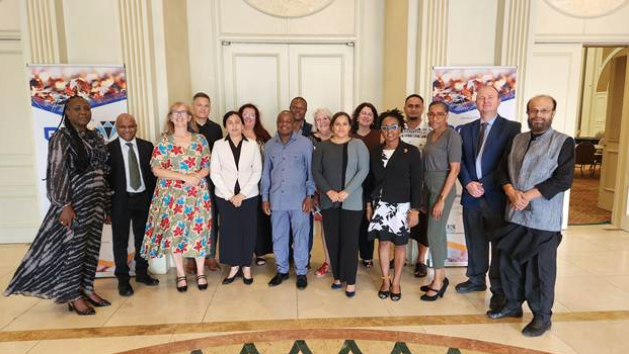
Adviser: Higher Education
In the Gaborone Statement, a product of the Eleventh Pan-Commonwealth Forum on Open Learning (PCF11) in Botswana, Commonwealth Education Ministers emphasised the importance of equipping citizens with skills for productive and resilient lives. This collective call to action emphasises the importance of providing flexible, work-relevant learning opportunities for out-of-school youth and adults, aligning micro-credentials with labour market demand, and the urgent need to develop skills for the green and blue economies. To achieve these goals, systems must support recognition of prior learning, strengthen Technical and Vocational Education and Training (TVET), and open pathways for intra-Commonwealth trade and investment opportunities.
Taking this into consideration, the Commonwealth of Learning (COL) has taken a leading role in advancing this agenda. Its work on micro-credentials, particularly through the development of the Commonwealth Micro-credential Framework for Lifelong Learning, provides a coherent approach to quality, recognition and portability. The framework sets out principles for alignment with national qualifications systems, emphasises quality assurance, and positions micro-credentials as key building blocks within lifelong learning pathways. By doing so, it responds directly to the Gaborone Statement’s call for skills that are both work-relevant and future-ready.
A significant milestone in this journey was the recent Micro-credential Consultant Capacity-building Workshop held ahead of the PCF11 in September 2025. The workshop convened experts from across the Commonwealth to engage critically with issues of credit transfer, technology-enabled registries, and the development of national frameworks. Apart from preparing consultants for the implementation of the Commonwealth Micro-credential Framework for Lifelong Learning, a practical action plan and draft roadmap was developed, focusing on how countries can adapt the Commonwealth framework to local contexts. This collaborative process underscored the importance of contextual relevance while ensuring alignment with shared Commonwealth standards.
Micro-credentials have particular potential to respond to rapidly changing labour-market needs. Their modular design allows learners to gain verifiable recognition for specific skills, whether in digital competencies, entrepreneurship, or emerging fields such as renewable energy and ocean-based industries. For employers, micro-credentials offer trustworthy evidence of competencies; for learners, they provide accessible and stackable pathways into further education and employment. By embedding micro-credentials into TVET and higher education systems, Commonwealth countries can create more inclusive and resilient education-to-work transitions.
The workshop further highlighted the critical role of technology. Digital platforms, open badges, and even blockchain-based solutions can enhance transparency, portability, and employer trust. However, the most important factor remains stakeholder engagement. Governments, institutions, industry partners and other stakeholders, must all be meaningfully involved in the design and implementation of national frameworks. This collective effort ensures that micro-credentials respond to real-world demands while promoting equity and sustainability.
Going forward, the Commonwealth Micro-credential Framework for Lifelong Learning has the potential to serve as both a guiding document and a practical toolkit for mainstreaming micro-credentialling in the Commonwealth. If adopted and adapted across Commonwealth Member States, it can strengthen coherence, support mobility, and accelerate the creation of resilient skills ecosystems.
The vision of the Gaborone Statement is clear. Skills for productive and resilient lives are no longer optional, they are essential. Through strategic initiatives, such as implementing micro-credential frameworks, supported by entities such as COL and endorsed by Member States, the Commonwealth is well-positioned to lead in shaping education systems that are fit for the future.
Follow Dr Jako Olivier on LinkedIn to keep up to date with COL’s work in open and distant education across the Commonwealth.


